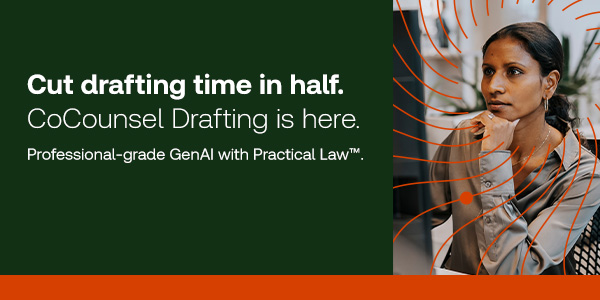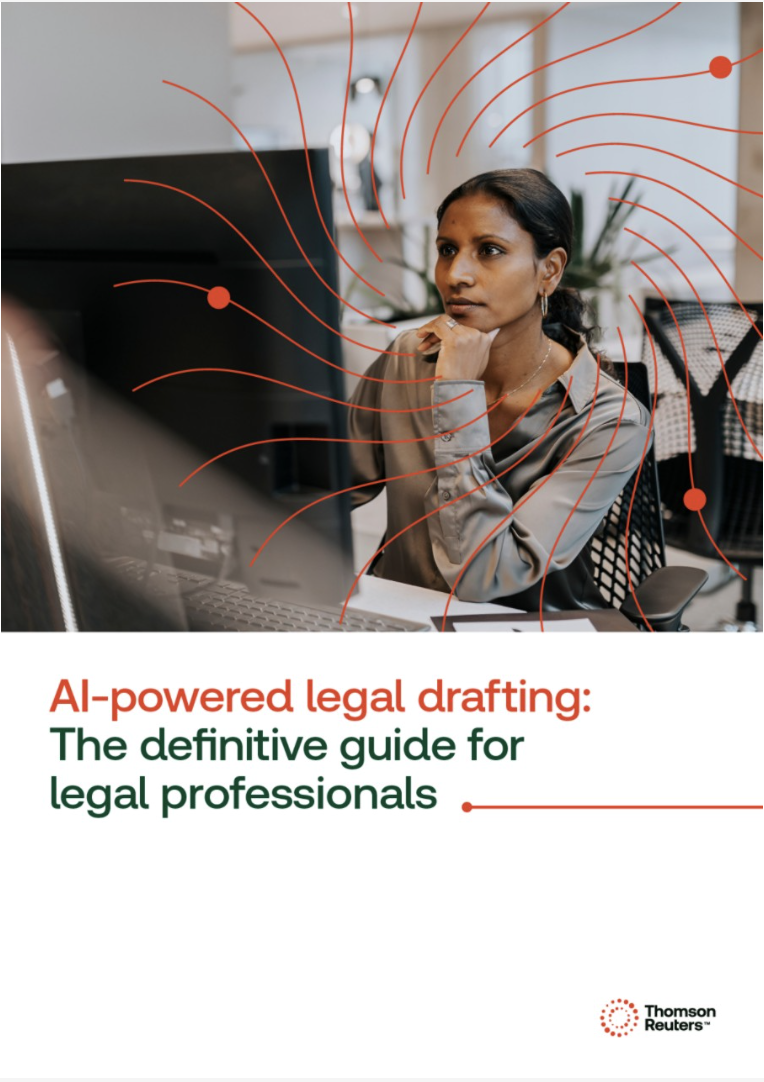Some small changes to your working style, paired with AI-powered legal drafting technology can help you stay on track.
Distractions, interruptions, diversions. These can all steal focus away from your work. According to one academic study, it takes an average of 23 minutes and 15 seconds to fully re-focus your concentration once you’ve been distracted. And when you’re drafting contracts, attention to detail is critical.
Missing or misinterpreting even a small detail can put your client at risk. A misplaced comma or the wrong verb tense can change contract clauses in a meaningful way. So, what can you do to maintain your focus while drafting? Eliminate the focus-stealers and lean on technology.
Here are some common distractions found in everyday work – we’re sure you’ve experienced a few of these!
Jump to ↓
| Curious colleagues |
| Environmental essentials |
| Digital diversions |
| Trusting your technology |
| Advantages of AI |
| Reimagine drafting |
Curious colleagues
Socialising with co-workers is one of the joys of the workplace. We like to get to know the people we spend eight (10, 12?) hours with each day. But putting limits on those interactions can help you stay on task. Consider a professional ‘time out’ when you need uninterrupted time to work on a contract. Start by closing your door. While it may seem anti-social, it provides a physical barrier between you and others. Adding a sign requesting privacy adds another layer of defence. If that doesn’t help, consider this white lie: change your sign to say, “Client Call in Progress.” This sacrosanct legal activity will virtually eliminate interruptions.
Alternatively, if you have the good fortune of working with an administrative assistant or paralegal, make sure they know which interruptions are worthy of disturbing your workflow.
Environmental essentials
With so many of us working from home, our ‘office’ may be the kitchen table or the sofa. Take care to keep your environment free of innate distractions – turn off the TV, put the dog in another room, and keep your water bottle close by. The more focused you stay, the faster you’ll complete the contract and the sooner you can take a break with your furry friend.
Digital diversions
Your virtual environment is equally important. Put your office chat app on Do Not Disturb (or sign out altogether.) Put an auto out-of-office reply on your email system then log out to make sure you’re not tempted to offer a quick reply to an interesting alert.
Here’s the hard one: manage your mobile phone. Most of us don’t turn our phones off, fearing we’d miss an important or emergency call. Shifting to vibrate mode isn’t a big help, since your quiet environment will probably allow you to hear or feel the vibrations. So, managing the inevitable interruptions will help you concentrate on the contract you’re drafting. Invest a few minutes in mastering the priority notification features on your smartphone. These functionalities enable you to pause the influx of incessant notifications while guaranteeing that your crucial alerts are still delivered.
Trusting your technology
Legal professionals often face significant challenges when drafting legal documents, with one of the main issues being their technology may not adequately meet their needs. Many legal professionals are burdened with outdated or unreliable technology that fails to streamline the drafting process. This inefficiency is compounded by the intricate nature of legal documentation, which involves juggling numerous complex components and ensuring absolute precision and compliance. When the technology is not up to par, it exacerbates these challenges, leading to prolonged drafting times, increased potential for errors, and ultimately, a strain on the productivity and effectiveness of work.
Advantages of AI
Like so many things these days, AI can help. AI-powered tools are available to assist with drafting contracts, plus they can help you stay focused.
The process of searching, cutting, pasting, deleting, and editing legal documents is an area fraught with diversions — especially when you’re switching in and out of different platforms, composing a contract in Microsoft Word, and then looking for previous versions of contracts in your in-house database or tracking down model clauses online. When you return to Word to finish, you then must re-engage with your contract language and regain your concentration.
New AI-powered technology can tackle these drafting problems directly within Microsoft Word. You can easily find the best starting point, surface trusted recommendations for contract language, facilitate internal playbook creation and management, and use AI to refine and review documents to produce accurate, better-quality work.
Now, you can keep your focus on the draft, without being distracted by rabbit holes within other programmes.
 |
|
Reimagine drafting
With the billable-hours clock ticking away, staying focused while drafting contracts is as important as the precision and clarity of the draft itself. Those you serve depend on you to create documents that will safeguard their interests. By controlling human, environmental, and digital distractions, and by using the latest AI technology, your drafting process can become more focused and efficient.
Ready to learn more about AI-powered legal drafting? Download this white paper for insights on how to take control of your time and transform the way you draft legal documents.
 |
|
